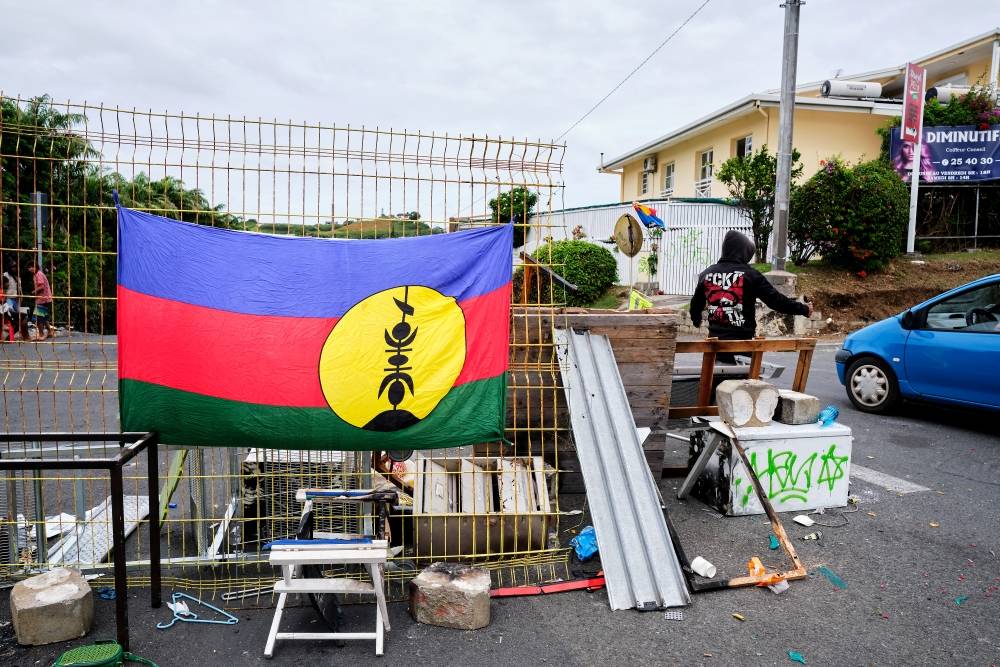After a series of problems and protests related to the presence of French military forces in the Sahel countries of Africa in recent years, France has been facing protests in the archipelago of New Caledonia in the Pacific for the past two weeks, which remains a French colony.
The protests erupted following the Kanak people's rejection, the indigenous inhabitants of the archipelago, of the constitutional amendments adopted by the French National Assembly earlier this month. These amendments expand the right to vote in local elections to include residents who have been present for more than ten years, which pro-independence activists consider an attempt by Paris to marginalize the electoral weight of the indigenous people, who represent 40% of the archipelago's population. Under current law, only those living in New Caledonia since at least 1998 and their children over 18 years old can vote in local elections.
The French authorities seemed unprepared for an uprising of this magnitude, the largest since 1985, in this nickel-rich archipelago and other natural resources, colonized by Napoleon III, nephew of Napoleon I, in 1853.
The French High Commissioner, Louis Le Franck, quickly imposed a state of emergency, a curfew, and the suspension of the Internet in Nouméa, the archipelago's capital, and other areas controlled by the protesters. Reinforced French security forces tried to disperse the protests by force, resulting in the deaths of three protesters and two French gendarmes so far. French President Emmanuel Macron traveled to the archipelago on Tuesday after holding three meetings since the crisis began with military and security officials, who decided to forcibly open the road from Nouméa to the airport and remove the protesters' barricades due to shortages of goods and food products.
The unrest, which continues at a lower intensity, has raised concerns in neighboring countries, particularly Australia and New Zealand, which have begun evacuating their citizens from the archipelago. The archipelago is located 1,500 kilometers east of Australia and has a population of about 300,000.
After more than two centuries of French colonization, the debate over the archipelago's status as part of France or its autonomy, even independence, remains open, with opinions divided along ethnic lines. Historically, France primarily used the island as a prison. Today, European inhabitants are divided between descendants of settlers and descendants of prisoners forcibly sent to the island. Generally, Europeans make up a quarter of the population. France granted citizenship to the Kanak people in 1957.
The crisis in New Caledonia has resonated in four other French colonies: Réunion in the Indian Ocean, Guadeloupe and Martinique in the Caribbean, and French Guiana in South America. Leaders of these colonies have sent an open letter to Paris asking to revert the amendments made to the local electoral law. It is noteworthy that France still maintains 12 colonies worldwide.
It is certain that the crisis in New Caledonia weakens French policy towards China in Asia.
France maintains a military base in New Caledonia, part of a French military deployment of 8,000 soldiers in the Pacific and Indian Ocean regions, and a French exclusive economic zone, the second largest after that of the United States.
It is certain that the crisis in New Caledonia weakens French policy towards China in Asia, especially since Macron expressed to Chinese President Xi Jinping, during his visit to Paris earlier this month, his dissatisfaction with the development of Sino-Russian relations and military cooperation between Beijing and Moscow, with negative repercussions on Ukraine, as well as the fact that China is flooding the European market with some of its exports, particularly electric cars.
However, Paris has not accused Beijing of being behind the protests in New Caledonia, but rather French Interior Minister Gérald Darmanin has accused Azerbaijan. He claimed that Kanak activists had visited Baku in recent months.
Darmanin bases this accusation on the strengthening of relations between France and Armenia and Paris's willingness to sell weapons to Yerevan as relations between the former Soviet republic and Russia deteriorate, especially after Azerbaijani forces invaded the Nagorno-Karabakh region last autumn, a region predominantly populated by Armenians.
After a series of French failures in Mali, Burkina Faso, and Hungary in the Sahel region of Africa, the crisis in New Caledonia adds new difficulties for Macron, whose popularity is declining, and it may not take long before this is reflected in the polls during the European elections starting on June
Please post your comments on:
[email protected]
 Politics
Politics








